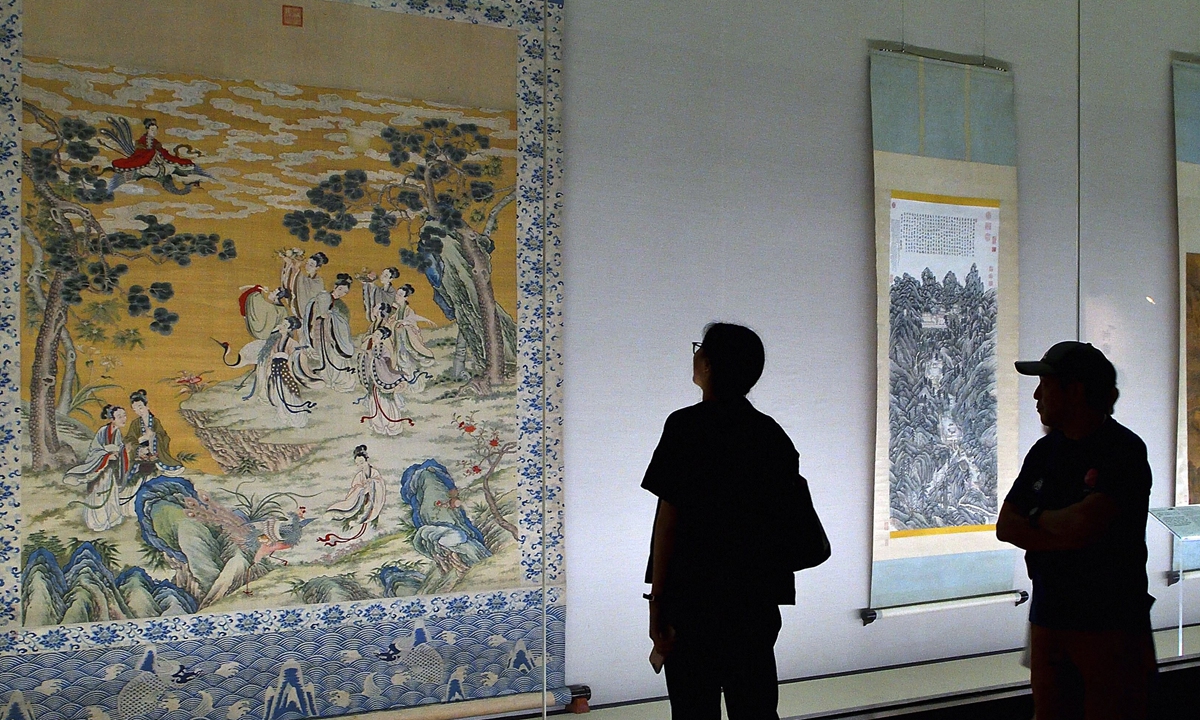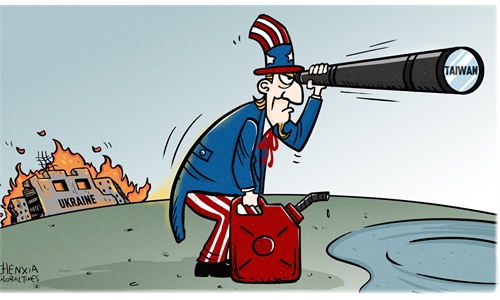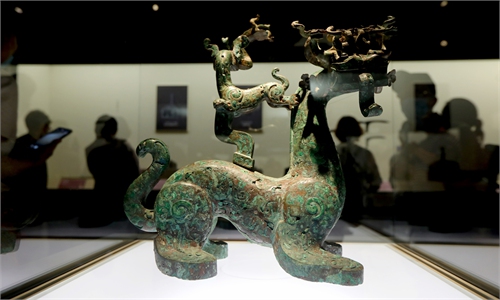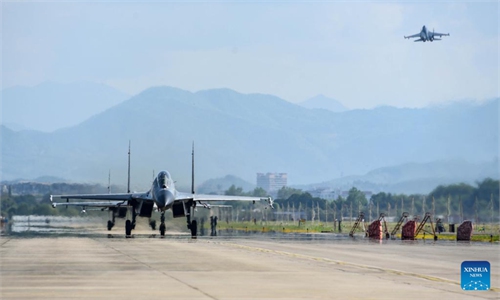'Taiwan independence' secessionists warned not to be 'unworthy descendants' amid rumor of relic relocation to US, Japan

Palace Museum in Taipei Photo: AFP
As tensions escalate across the Taiwan Straits as result of US House Speaker Nancy Pelosi's provocative visit to the island, a rumor that some of the Chinese relics at the Palace Museum in Taipei will be relocated to the US and Japan for "protection" has sparked public outrage. The museum denied the rumor on Sunday, but found it hard to dispel public concerns.
Although it was a rumor, observers and netizens have raised an alert over possible relic relocation abroad from the island of Taiwan, as it will not only be a great disaster for Chinese culture, but also a provocation to the whole Chinese nation, and they also warned regional leader Tsai Ing-wen and other secessionists on the island not to be "unworthy descendants."
The museum is home to many treasures, most of which were moved from the Palace Museum in Beijing and other institutions throughout the Chinese mainland during the Kuomintang (KMT)'s retreat to the island after its defeat in a civil war in the late 1940s, and became one of the world's finest collections of Chinese imperial relics. The museum is actively considering how to "protect its treasures" if a military conflict occurs, media reported.
With China carrying out military drills around the island following Pelosi's provocative visit there, rumors circulating online claimed that Democratic Progressive Party (DPP) authorities are preparing to pick and relocate some 90,000 relics to the US and Japan.
The topic "Taiwan authorities prepare to transfer relics of Palace Museum in Taipei to US" was trending on China's Twitter-like social media platform Sina Weibo on Sunday.
The relics are a cultural heritage of the 5,000 years of Chinese history, and once sent abroad, it will be difficult to get them back, many outraged netizens commented.
Netizens from the island of Taiwan have also expressed their astonishment over the reported potential relocation.
The rumors came after US media outlet CNN on July 30 revealed that "in the event of an evacuation, the museum said it would focus on saving around 90,000 relics from its 700,000-strong collection, prioritizing artifacts of higher value and those that take up less space." The museum would not disclose where the evacuated items would be stored, or how they would be transported there, according to the report.
Taiwan's local media ran a report on Sunday saying the museum conducted a wartime response drill in late July that focused on evacuating its massive collection of artifacts.
Challenged by the public outrage, the museum debunked the evacuation rumors as fake news on Sunday. A netizen on Taiwan island commented under the museum's Facebook account that the denial did not convince them.
Whatever the reason given, whoever lets the cultural relics be taken overseas will be a sinner, said another.
The museum's collection will be better off if it remains where it is in the event of an "attack from the Chinese mainland," suggested Fung Ming-chu, former curator of the museum, local media reported.
Staying put is the best arrangement for the antiquities and this is the consensus of all museum retirees, Feng claimed.
Fung, former director of the Taipei Palace Museum from September 2012 to May 2016 and now a historian, told the Global Times in an exclusive interview that the "exercise" carried out by the management of the museum, which is in line with the ideas of the secessionist Democratic Progressive Party (DPP) authority, was both "amateurish and ill-intentioned."
Fung emphasized that both sides of the Taiwan Straits share the same cultural roots, and although the DPP is trying to erase the imprint of traditional Chinese culture on the island, the vitality that has been passed down from generation to generation is still strong and popular.
Sending relics overseas in the event of an emergency will certainly meet with protests both in the mainland and Taiwan island, Zhu Wei, vice director of the Communication Law Research Center at the China University of Political Science and Law, told the Global Times on Monday. He believes that the local residents will not support such an arrangement.
Zhu urged the Taiwan authorities and other secessionists in the island not to be "unworthy descendants."
Even if some of the relics are relocated overseas by the secessionists in the future, China can recover them after national reunification according to domestic and international laws, Zhu noted.
Public concern over the relocation has grown since the museum sent some fragile relics abroad on many occasions for exhibitions while the DPP authorities were in office.
In early 2019, the museum's decision to lend a priceless 1,200-year-old masterpiece of calligraphy - the fragile Requiem to My Nephew, written during the Tang dynasty (618-907) by Yan Zhenqing - to a Japanese museum prompted an outcry among the public, South China Morning Post reported.
The island of Taiwan was colonized by Japan for nearly half century beween 1895 and 1945.




